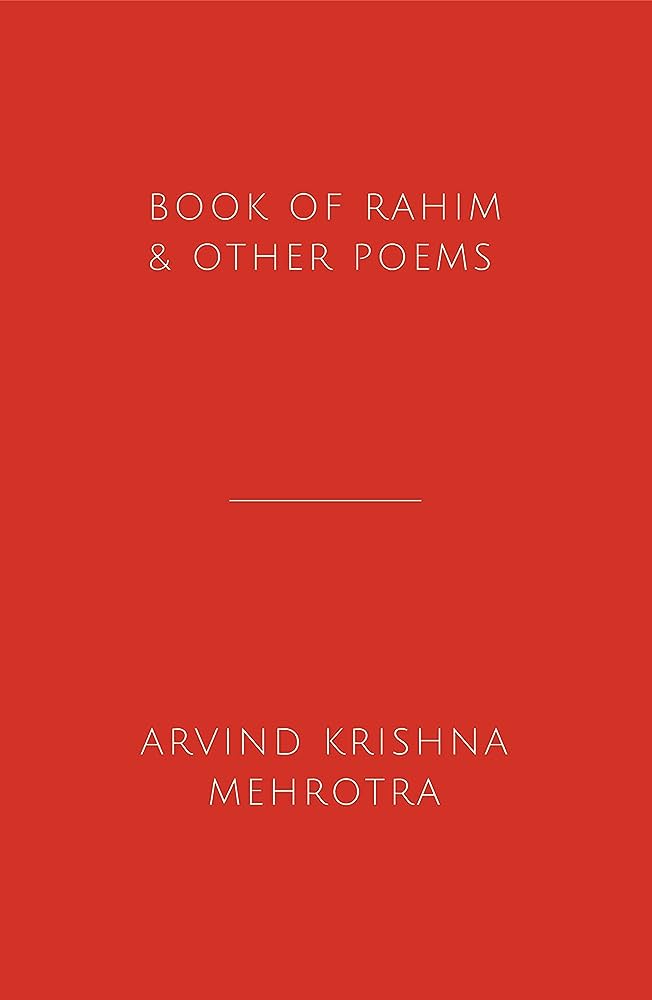Arvind Krishna Mehrotra’s Book of Rahim spans time, history, and everyday life. Twenty-five years since his last collection of new poems, Mehrotra returns with a book that entwines the extraordinary and the mundane, the historical and the personal.
In the book, Mehrotra inhabits the voice of an ageing Ghalib; revisits Abd al-Rahim Khan-i-Khanan (1556-1627), a Baharlu Turk and an important figure in the Mughal nobility during the reigns of Akbar and Jehangir; and discovers objects and letters from his family home in Lahore.
The following are excerpts from the book.

Book of Rahim
Abd al-Rahim Khan-i-Khanan (1556–1627), a Baharlu Turk, was an important figure in the Mughal nobility during the reigns of Akbar and Jehangir. A poet, translator, and military general who led successful imperial campaigns and was bestowed with many honours, he was proficient in Chagatay Turkic, Persian, Arabic, and Braj, had some knowledge of Sanskrit, and even picked up a smattering of Portuguese at Akbar’s suggestion, which enabled him to converse with traders and Jesuits. Described as ‘a man of the sword as well as of the pen’, he was also known for his munificence.
Indian children read Rahim’s dohas (rhyming couplets), of which he wrote some 300, in their Hindi textbooks in school. Little is told of his life or, if told, is remembered, but the dohas, once memorised, are seldom forgotten. Unless his name appears in it, and sometimes it does not, you might recall the couplet and not know it is Rahim’s. It has passed into the language.
[…]
Schoolboy’s Rahim
He outlived his four sons. One died of drink.
One’s head was cut off and delivered,
wrapped in cloth, as a gift. One died young.
When his favourite son died none dared tell him.
No mausoleum covers their graves.
The tomb with blue tiles on the dome
was built for Miyan Fahim, his faithful servant
born of a slave girl.
Keep grief
to yourself, Rahim says.
Sharing doesn’t help
It only leaves
chinks in your armour
that others exploit.
We read him in school. The alphabet was familiar,
but you scrunched up the eyes to read the page.
The meaning had to be cribbed. Hindi was grief,
and grief the sports field if you missed a sitter.
[…]
Lahore
Unterrestrial, ungoogleable, unreachable,
landlocked city that erupts from the sea
and disappears in the sky;
whose birds sing in the dawn to come;
the walled city without walls, Lahore.
Behind razor wire, the home town
next door, the Temple Road address
to which I cannot ask my way back;
the city of a thousand names and one:
it can only be Lahore.
Men of the hinterland arrived at its gates,
slow moving men with keen eyes bringing bales
of cloth, marking the doors to knock on. They knew
their sums and flourished as seeds do
when the ground is virgin, waiting to be clothed.
Then when nations rose like party balloons in the sky
to be sold by balloon men at streetcorners, they melted
into trains. Their houses stand, their names
still on gateposts, they themselves dead. Asked
for the blood group, I extend a finger called Lahore.




